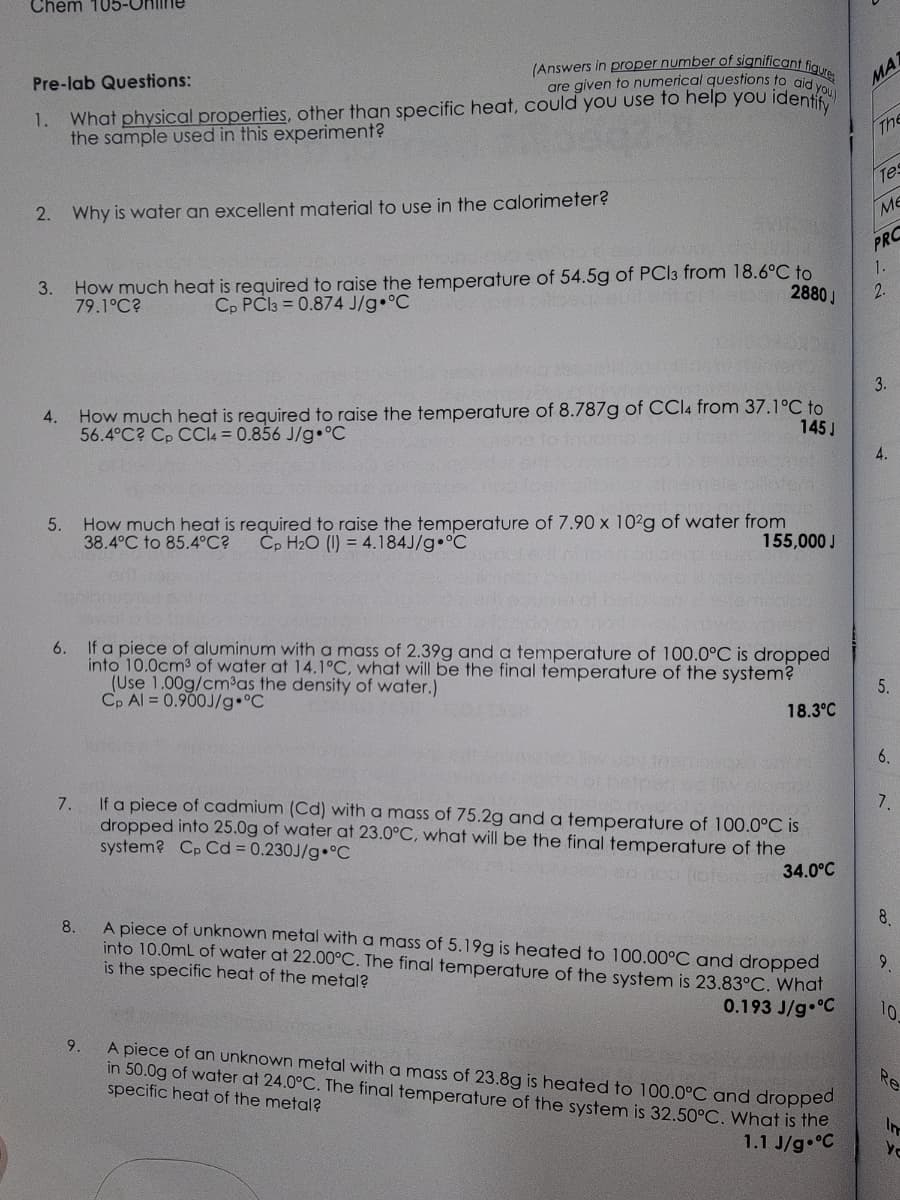4. How much heat is required to raise the temperature of 8.787g of CCl4 from 37.1°C to 56.4°C? Cp CCl4 = 0.856 J/g °C 145 J 5 How much heat is required to raise the temperature of 7.90 x 102g of water from 38.4°C to 85.4°C? Ćp H₂O (I) = 4.184J/g °C 155,000 J 6. If a piece of aluminum with a mass of 2.39g and a temperature of 100.0°C is dropped into 10.0cm³ of water at 14.1°C, what will be the final temperature of the system? (Use 1.00g/cm³as the density of water.) Cp Al = 0.900J/g °C 18.3°C
Thermochemistry
Thermochemistry can be considered as a branch of thermodynamics that deals with the connections between warmth, work, and various types of energy, formed because of different synthetic and actual cycles. Thermochemistry describes the energy changes that occur as a result of reactions or chemical changes in a substance.
Exergonic Reaction
The term exergonic is derived from the Greek word in which ‘ergon’ means work and exergonic means ‘work outside’. Exergonic reactions releases work energy. Exergonic reactions are different from exothermic reactions, the one that releases only heat energy during the course of the reaction. So, exothermic reaction is one type of exergonic reaction. Exergonic reaction releases work energy in different forms like heat, light or sound. For example, a glow stick releases light making that an exergonic reaction and not an exothermic reaction since no heat is released. Even endothermic reactions at very high temperature are exergonic.

Trending now
This is a popular solution!
Step by step
Solved in 6 steps









